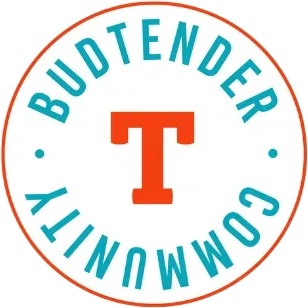A marijuana business in Michigan is arguing that federal labor laws should not apply to marijuana employees since cannabis remains illegal under U.S. law in an attempt to block unionization.
The company, Exclusive Brands, based in Ann Arbor, recently made this case to the National Labor Relations Board (NLRB). If the board accepts the argument, it could weaken protections for workers in the fast-growing $32 billion cannabis market. Observers say this could be the first time a marijuana company has used federal prohibition as a reason to block union efforts.
For years, the NLRB has recognized cannabis employees’ rights under the National Labor Relations Act (NLRA). Reversing that stance would mean overturning its own precedent. Lauren McFarran, a former NLRB chair, described such a shift as a major departure. Still, some experts believe a Trump-era board could be open to such a move, given the administration’s record of limiting worker protections.
At the moment, the NLRB cannot act because it lacks the quorum needed to issue decisions. Until new appointments are made, labor disputes fall under state law, leaving cannabis workers and employers facing a confusing mix of rules depending on where they operate.
Tensions are already high in Michigan, where eight employees from Exclusive Brand have been on strike since late August. They voted to join the United Food and Commercial Workers union, but the company has refused to recognize their choice. Budtender Emily Hull, part of the organizing team, accused the company of cutting hours in retaliation against outspoken staff. According to Hull, Exclusive has also ignored attempts to negotiate.
Josh Leadford, the company’s attorney, filed a petition with the NLRB in early August. His filing claimed that because cannabis is classified as a Schedule I drug, neither Exclusive nor the union can seek protection or enforcement through the board. Notably, the petition did not cite prior case law. A hearing has yet to be scheduled.
Historically, even GOP-appointed panels have agreed that the NLRA applies to marijuana businesses. But if the NLRB remains in limbo, states may step in. Some states, such as California, Massachusetts, and New York, allow workers to appeal to state labor boards if the federal board cannot act. In conservative states with weaker labor regulations, however, cannabis companies might benefit.
Marijuana employees already face gaps in protection. Federal law excludes agricultural workers from the NLRA, which means many cultivation staff are left out unless their state has its own laws, as in California. Unions gained traction in the industry under Biden’s administration, with Arizona seeing its first agricultural unionization in decades.
However, major operators like Green Thumb and Curaleaf Holdings Inc. (CSE: CURA) (OTCQX: CURLF) have fought hard against union efforts in both the courts and before the NLRB.
About CNW420
CNW420 spotlights the latest developments in the rapidly evolving cannabis industry through the release of an article each business day at 4:20 p.m. Eastern – a tribute to the time synonymous with cannabis culture. The concise, informative content serves as a gateway for investors interested in the legalized cannabis sector and provides updates on how regulatory developments may impact financial markets. If marijuana and the burgeoning industry surrounding it are on your radar, CNW420 is for you! Check back daily to stay up-to-date on the latest milestones in the fast -changing world of cannabis.
To receive SMS alerts from CNW, text CANNABIS to 888-902-4192 (U.S. Mobile Phones Only)
For more information, please visit https://www.CannabisNewsWire.com
Please see full terms of use and disclaimers on the CannabisNewsWire website applicable to all content provided by CNW, wherever published or re-published: https://www.CannabisNewsWire.com/Disclaimer
CannabisNewsWire
Denver, CO
www.CannabisNewsWire.com
303.498.7722 Office
Editor@CannabisNewsWire.com
CannabisNewsWire is powered by IBN



















